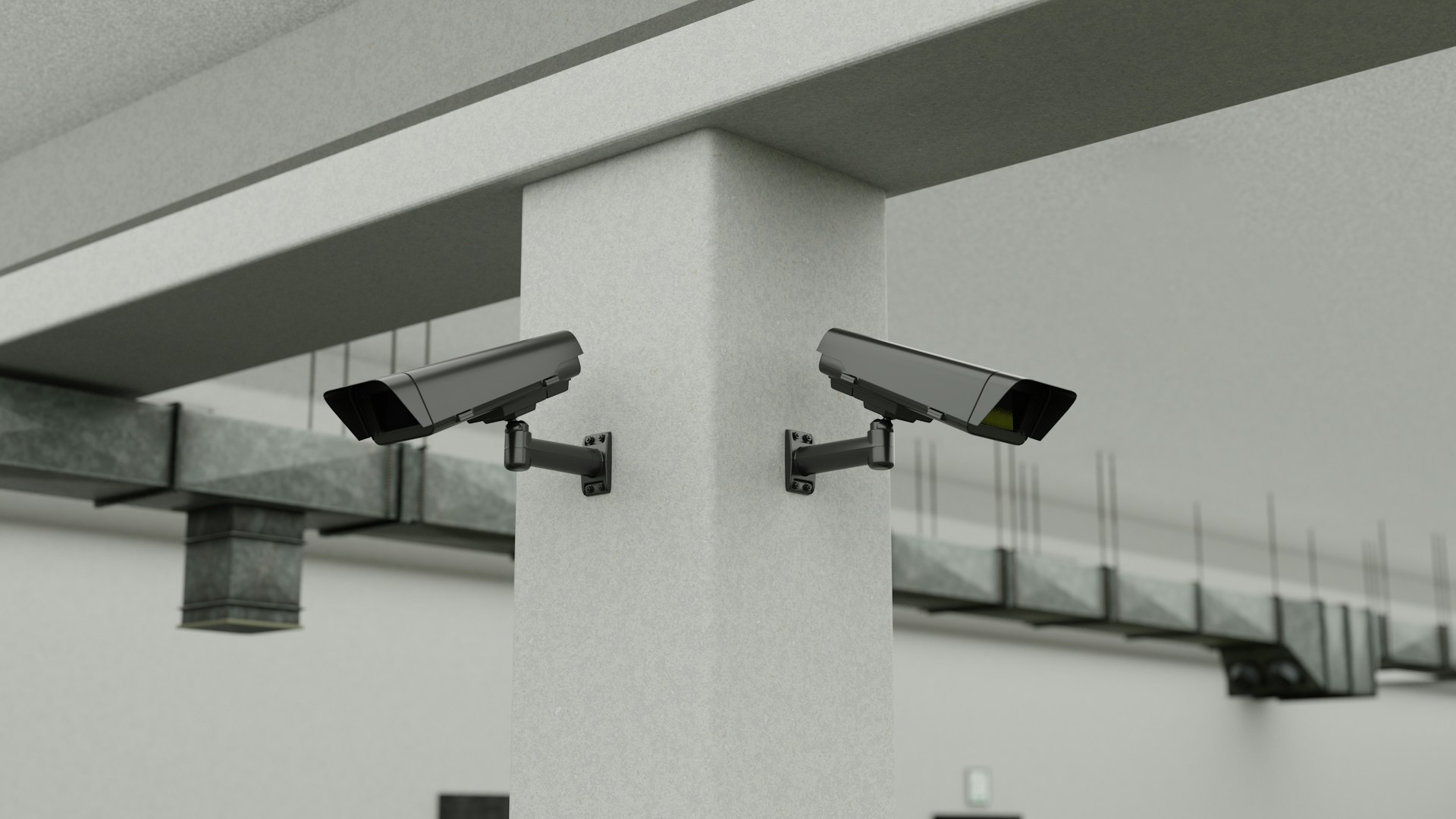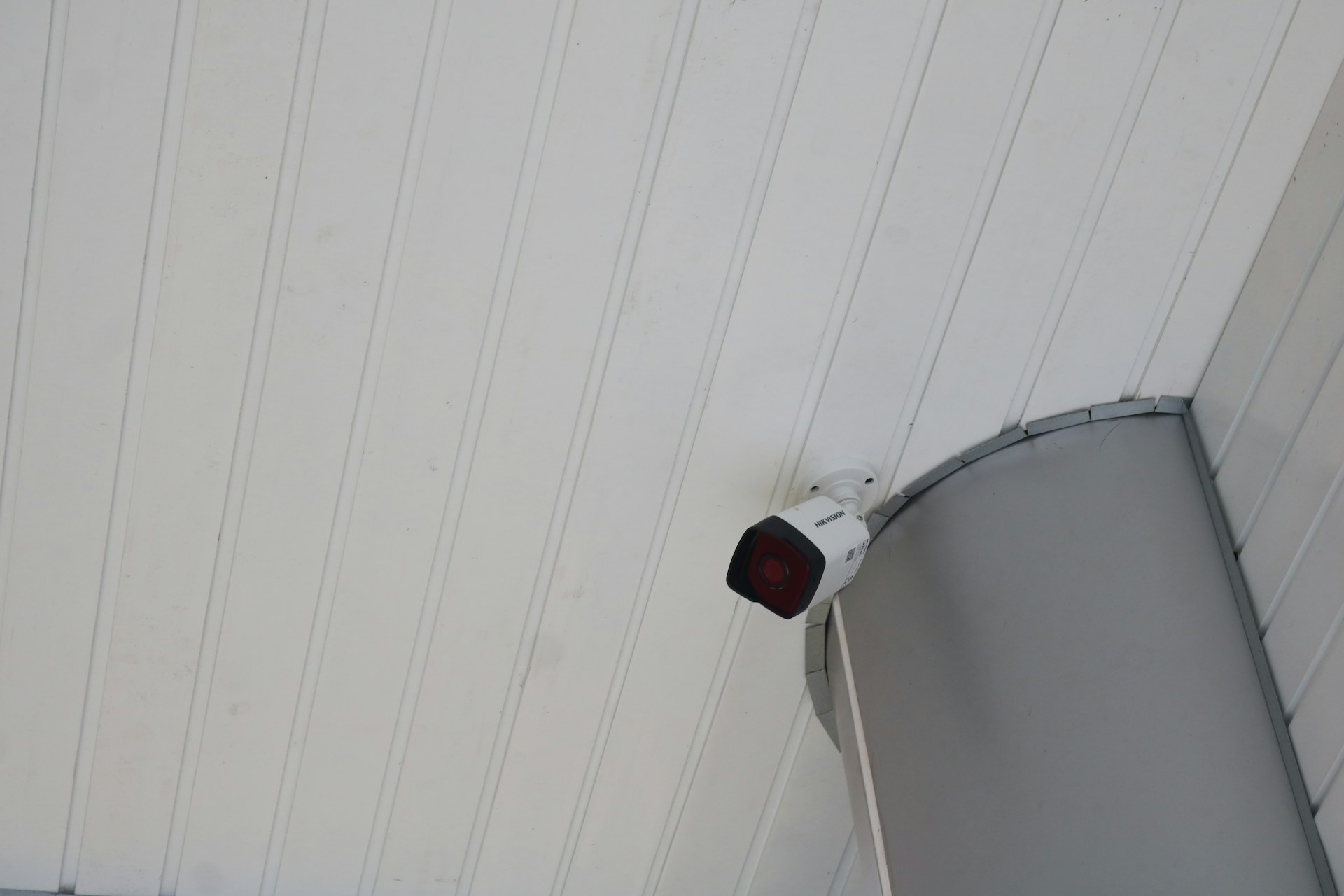As you consider enhancing your home security, investing in a camera with cloud storage may be one of the best decisions you can make. These cameras not only provide real-time surveillance but also ensure that your footage is securely saved online, allowing you to access it anytime, from anywhere. With various options available, you can select models that suit your specific needs, including features like motion detection, night vision, and two-way audio.
Living in the greater Houston area, you face unique security challenges. The right cloud storage camera can help you monitor your property effectively and provide peace of mind whether you’re at home or away. Options exist that offer free storage plans, making it easier for you to find a solution that fits your budget without sacrificing security.
Exploring the available models in the market can feel overwhelming. This article will guide you through the top picks for home security cameras with cloud storage, highlighting their key features and benefits. Whether you're protecting your home or your business, you'll gain valuable insights to make an informed choice.
Understanding Home Security Cameras with Cloud Storage
Home security cameras with cloud storage offer a modern and efficient way to monitor your property. These systems store video footage securely online, allowing you to access it anytime and anywhere. Understanding how this technology works is essential for effective home surveillance.
What Is Cloud Storage for Security Cameras
Cloud storage for security cameras refers to the remote storing of video footage on internet-based servers. Rather than relying on local storage devices, such as hard drives, this solution allows you to save data in a secure, offsite location.
Your camera continuously uploads footage to the cloud, making it available whenever needed. This method eliminates the risk of losing data due to theft or hardware failure.
Many providers offer various cloud storage plans, enabling you to choose one that fits your storage needs and budget. This flexibility caters to different surveillance requirements, ensuring you have the right solution tailored to your situation.
How Cloud Storage Works with Home Security Cameras
When you integrate cloud storage with home security cameras, the process begins with video recording. As your cameras capture footage, they simultaneously send this data to a remote server through your internet connection.
The system typically uses encryption to secure the data during transfer, ensuring that unauthorized parties cannot access your surveillance footage. Once uploaded, you can retrieve and view your video recordings via a secure app or web portal.
This capability allows you to monitor live feeds and review past recordings from anywhere, providing peace of mind even when you are away from home. Many cloud services also support features like motion detection alerts and notifications, enhancing your overall security system.
Benefits of Cloud Storage for Home Surveillance
Cloud storage offers several advantages for home surveillance. First, it ensures that your video footage is safely stored offsite, minimizing the risk of loss due to local hardware issues.
Additionally, you can easily expand your storage capacity based on your needs without investing in new physical equipment. Cloud services also allow for automated backup, meaning your footage is continuously uploaded, securing it against accidental deletion.
These systems often come with user-friendly interfaces, making it simple for you to manage your recordings and settings. Many of the best security cameras on the market now include built-in cloud storage options, providing an all-in-one solution for modern home security.
Key Features of Security Cameras with Cloud Storage
When choosing a security camera with cloud storage, it's essential to consider features that enhance your surveillance experience. These key aspects will ensure that your property in the greater Houston area remains secure and monitored effectively.
Motion and Person Detection
Advanced motion detection is crucial for effective surveillance. These cameras can distinguish between human activity and other movements, reducing false alerts.
You can configure activity zones to focus on specific areas, fine-tuning detection to suit your environment. Some systems employ smart detection algorithms that enhance accuracy by differentiating between people and pets.
Notifications are delivered promptly when activity is detected, ensuring you stay informed. Many systems offer rich notifications, which can capture images or clips for quick reference. This allows you to respond to situations in real time, enhancing your overall security.
Resolution and Image Quality
The clarity of video footage is vital. High-resolution cameras provide detailed imagery, making identification easier. Look for options that support at least 1080p resolution for clear daytime and nighttime viewing.
Color night vision capabilities can improve nighttime surveillance. This feature allows for clearer images in low-light conditions, facilitating better monitoring of your property.
The field of view also plays a significant role in coverage. A wider angle captures more area, reducing the number of cameras needed. Consider models that offer adjustable field settings to maximize your coverage based on your property layout.
Smart Features and Notifications
Smart features enhance the functionality of security cameras. Two-way audio allows you to communicate directly through the camera, adding an interactive element to your surveillance system.
Live view functionality ensures you can monitor your space in real time via your smartphone or computer. This feature is important for keeping an eye on your property, especially when away.
Continuous video recording provides a comprehensive view of events as they happen. Store video clips in the cloud for easy access to footage. Options for 24/7 recording ensure you don't miss anything important, making these cameras a reliable choice for your security needs in Houston.
Cloud Storage Plans and Subscription Options
When considering home security cameras, understanding cloud storage plans and subscription options is crucial. These features can significantly impact your experience and the effectiveness of your security system.
Free vs Paid Cloud Storage Plans
Many home security camera systems offer both free and paid cloud storage plans. Free options typically include limited features, such as a short retention period for your video history. For instance, some systems may provide only 24 hours of stored footage, which might not be adequate for more comprehensive surveillance needs.
Paid cloud storage plans offer extended features, including longer durations of video storage, enhanced video quality, and the ability to access footage from multiple devices. These plans can range from $3 to $10 monthly, depending on the features provided. Paying for extra features often brings peace of mind, especially if you want reliable access to your recorded video.
Monthly Fees and Subscription Models
When selecting a cloud storage plan, it’s essential to consider the monthly fees and subscription models available. Many providers offer tiered subscription models, allowing you to pay based on the number of cameras or the amount of storage required.
For example, some systems may charge a flat fee for unlimited camera coverage, while others may have a per-camera pricing system. Assessing your needs can help you choose the most cost-effective option.
You should also be aware of promotional offers. Some subscription models might provide discounted rates for the first few months, which can save you money as you evaluate the service.
Extended Storage and Video History
Extended storage and video history options are critical for users requiring longer-term surveillance. Many paid plans offer extended storage periods, such as 30 to 90 days of video history. This feature allows you to keep and review footage for a longer duration, useful for identifying incidents.
Some advanced plans even include capabilities like unlimited cloud storage, enabling video archiving without worrying about expiry. This option is ideal for those who require detailed records of activity over time.
Additionally, consider how easily you can access and download footage, as user-friendly interfaces improve your experience in managing your security footage.
Popular Brands and Models for Home Security
When selecting a home security camera with cloud storage, several brands stand out for their quality and reliability. Understanding their features can help you make an informed decision.
Ring and Blink
Ring offers a range of cameras, such as the Ring Stick Up Cam, known for its adaptability to indoor and outdoor settings. It features motion detection and two-way audio. Cloud storage plans are available, typically starting around $3 per month for 60 days of video history.
Blink, another Amazon brand, is popular for its affordability. The Blink Mini camera provides indoor monitoring and boasts free cloud storage for a limited time. Its battery life lasts up to two years, making it a convenient choice for homeowners.
Arlo and Arlo Secure
Arlo is recognized for its high-quality cameras, including the Arlo Pro 4. This model supports 2K HDR video and comes with a powerful night vision feature. The Arlo Secure subscription service enhances functionality, providing cloud storage options that start at $3 per month for a single device.
The Arlo Ultra offers advanced features like a 120-degree field of view and motion tracking. This brand is ideal for tech enthusiasts looking for comprehensive security features and straightforward app integration.
Google Nest Cam and Nest Aware
The Google Nest Cam series, including the Nest Cam (battery), has become a popular choice due to its intelligent features. It differentiates itself with facial recognition and alerts when familiar faces are detected. Nest Aware subscriptions start at $6 per month and provide up to 60 days of video history.
Additionally, the Nest doorbell combines video with two-way audio, enhancing your home security. Integration with Google Home devices offers a seamless smart home experience, allowing for voice commands and automation.
Wyze Cam and Eufy
Wyze Cam is celebrated for offering budget-friendly security solutions. The Wyze Cam v3 provides 1080p video quality, night vision, and free cloud storage for a rolling 14-day period. Its compact design fits easily in various spaces, making it great for smaller homes.
Eufy’s security cameras, including the Eufy Cam 2, stand out for their local storage options, reducing reliance on cloud services. While they do offer cloud storage plans, their AI technology enhances detection accuracy. Subscriptions are competitively priced at around $3 per month, giving you peace of mind without breaking the bank.
Security, Privacy, and Data Protection
When selecting a home security camera with cloud storage, security, privacy, and data protection are paramount. These aspects reassure you that your video recordings are safeguarded against unauthorized access while retaining your peace of mind.
Encryption and Enhanced Security
Strong encryption is essential for protecting your video footage as it transmits over the internet and while stored in the cloud. Look for systems that use AES (Advanced Encryption Standard), as it provides robust safeguards against hacking attempts.
Additionally, many reputable providers implement end-to-end encryption, meaning that only you can access the footage. This feature blocks any third party, including the service provider, from viewing your data, enhancing your overall security.
Data Privacy and Easy Access
Data privacy is critical when it comes to cloud storage. Your chosen security camera should offer clear privacy policies outlining how your information is used, stored, and shared. This transparency helps build trust and ensures your data isn’t misused.
Moreover, many systems come with user-friendly interfaces that allow you easy access to your video recordings anytime, anywhere. This feature ensures you can review footage without hassle, contributing to proactive security measures.
Data Security and Advanced Encryption
Advanced encryption methods significantly enhance data security. Look for security cameras that utilize TLS (Transport Layer Security) during data transmission to protect your video from interception.
Additionally, many cutting-edge systems incorporate biometric authentication options, such as facial recognition or fingerprint scanning, ensuring only authorized users can access the recordings. This multi-layered approach fortifies your security system, keeping your footage secure from unauthorized access.
Additional Considerations for Home Security Cameras
When selecting home security cameras, several important factors come into play, including connectivity, storage options, and the specific environment in which the cameras will operate. Understanding these aspects ensures that you choose a system that meets your needs effectively.
Wi-Fi Connectivity and Internet Requirements
Your security cameras rely heavily on a stable Wi-Fi connection for optimal operation. Ensure your Wi-Fi network provides sufficient bandwidth to handle video uploads without interruption. Cameras typically need a minimum of 1-2 Mbps upload speed to function properly.
Placement of your router is crucial; it should be within range of the cameras. Consider using Wi-Fi extenders for larger properties to enhance connectivity. Some cameras offer dual-band options, allowing you to choose between 2.4 GHz for range or 5 GHz for speed.
Also, you will need a reliable internet connection, as cloud storage services depend on it. Check your provider's speed and reliability, especially if you plan on accessing live feeds or storing high-definition video.
Local Storage Options and NAS Solutions
Local storage options are valuable for those who prefer not to rely solely on cloud services. Many cameras offer the option to use a microSD card for local recording. This can be a convenient solution if you experience outages or prefer to keep data at home. Make sure to choose a camera that supports a higher capacity card for longer recordings.
Network-attached storage (NAS) solutions provide another layer of flexibility. NAS devices can store multiple camera feeds in one centralized location, enabling easier access and management. This setup can be particularly useful if you have multiple indoor or outdoor security cameras.
Consider the compatibility of your chosen security cameras with your NAS system. Some systems can even record directly to NAS without the need for a computer.
Outdoor vs Indoor Security Cameras
Selecting between outdoor and indoor security cameras is essential based on their intended use. Indoor security cameras often focus on monitoring activities within a home and may feature two-way audio and facial recognition.
Conversely, outdoor security cameras must withstand various environmental conditions. Look for options designed to resist weather-related issues and provide sufficient outdoor surveillance. Floodlight cameras can enhance visibility at night, while PoE (Power over Ethernet) cameras simplify wiring and installation by combining power and data through a single cable.
Assess your coverage needs before purchasing. Evaluating the placement and features of each camera will help ensure you achieve your desired security level.
Frequently Asked Questions
When considering a home security camera with cloud storage, various factors come into play, including options available, costs, and features. Understanding these aspects will help you make an informed decision for your security needs.
What are the best home security cameras with cloud storage currently available?
Several options stand out, such as Lorex cameras, which offer reliable cloud storage plans and robust features. Other notable brands include Arlo and Ring, known for their user-friendly interfaces and high-quality video capabilities. Each system caters to different preferences and requirements.
Can you have a home security camera with cloud storage without a monthly subscription?
Yes, some security cameras offer cloud storage features without requiring a monthly subscription. These typically include limited storage options or specific timeframes for keeping footage. Researching each product's specifications will help you determine the best fit for your needs.
What are the advantages of wireless versus wired home security cameras with cloud storage?
Wireless security cameras are generally easier to install and provide flexible placement options. They can connect to your home network without physical cables. Wired cameras, however, tend to offer more stable connections and are often preferred for continuous power supply, reducing the risk of interruptions.
How much does cloud storage typically cost for home security cameras?
Costs for cloud storage can vary widely based on the provider and storage plan. Many services offer subscription plans ranging from $5 to $30 per month. It's crucial to assess your recording needs to choose the appropriate plan that matches your budget.
For how long can footage from security cameras be stored in the cloud?
Storage duration varies between providers, but many offer options from 7 days to several months. Some plans allow for extended storage but may come at an additional cost. Always check the specifics of your chosen plan to ensure it meets your requirements.
Are there outdoor security cameras that come with cloud storage, and how do they perform?
Yes, numerous outdoor security cameras feature cloud storage capabilities. Models like those from Lorex and Arlo are designed to withstand various weather conditions while delivering high-quality footage. Performance generally remains consistent, provided there is a stable internet connection.
.svg)



.svg)


.svg)



